2024 Shortlist

We are delighted to announce the shortlist for the 2024 Seamus Heaney Poetry Prize for a First Collection, supported by the Atlantic Philanthropies. The winner will be announced during the Seamus Heaney Centre’s annual Poetry Summer School, at the Award Night readings in June 2024.
"All three judges were delighted at the standard of the debuts submitted this year. The dazzling books that made the shortlist are different in kind but all insist on taking the world on their own terms, and refuse received notions in order to construct their own authority. We were knocked out by the integrity of these poets’ voices, and it’s genuinely heartening to see the art in such good shape."
- Nick Laird, Seamus Heaney Professor of Poetry at Queen's, and judge of the Poetry Prize
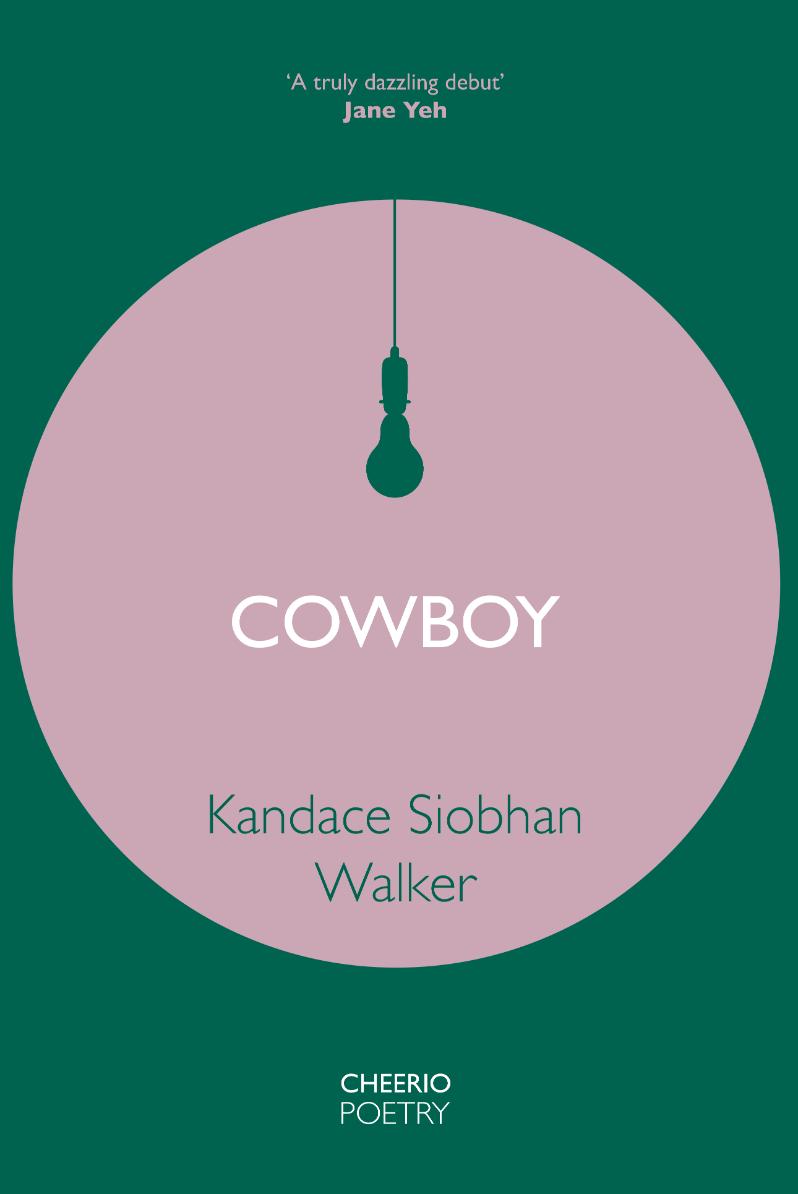
Cheerio Poetry
The wildness and alienation of our contemporary anxieties – diagnoses, spiritualities, memes and mythologies – bring complexity and vitality to this impressive debut, shortlisted for the Forward Prize for Best First Collection. The poems in Cowboy are knowing, millennial, internet-sick, funny, but there are deeper undercurrents, too: of embodied and disembodied spiritualities; of the knowledge of animals; of familial mythologies; of grief and longing; of autism and navigating diagnoses; of early and enduring disappointment; of the wildness underneath the smooth glass-and-chrome surfaces of contemporary life.
Kandace Siobhan Walker is a writer and artist of Jamaican-Canadian, Saltwater Geechee, and Welsh heritage. Her poems have appeared in Magma, The White Review, Poetry Wales and a number of anthologies.
She is the author of the pamphlet Kaleido (Bad Betty, 2022). In 2021 she was both the recipient of an Eric Gregory Award, and the winner of the White Review Poet’s Prize. In 2019, she won the Guardian 4th Estate BAME short story prize.
Cowboy, her debut full-length collection from CHEERIO Publishing, was shortlisted for the Forward Prize for Best First Collection in 2023.
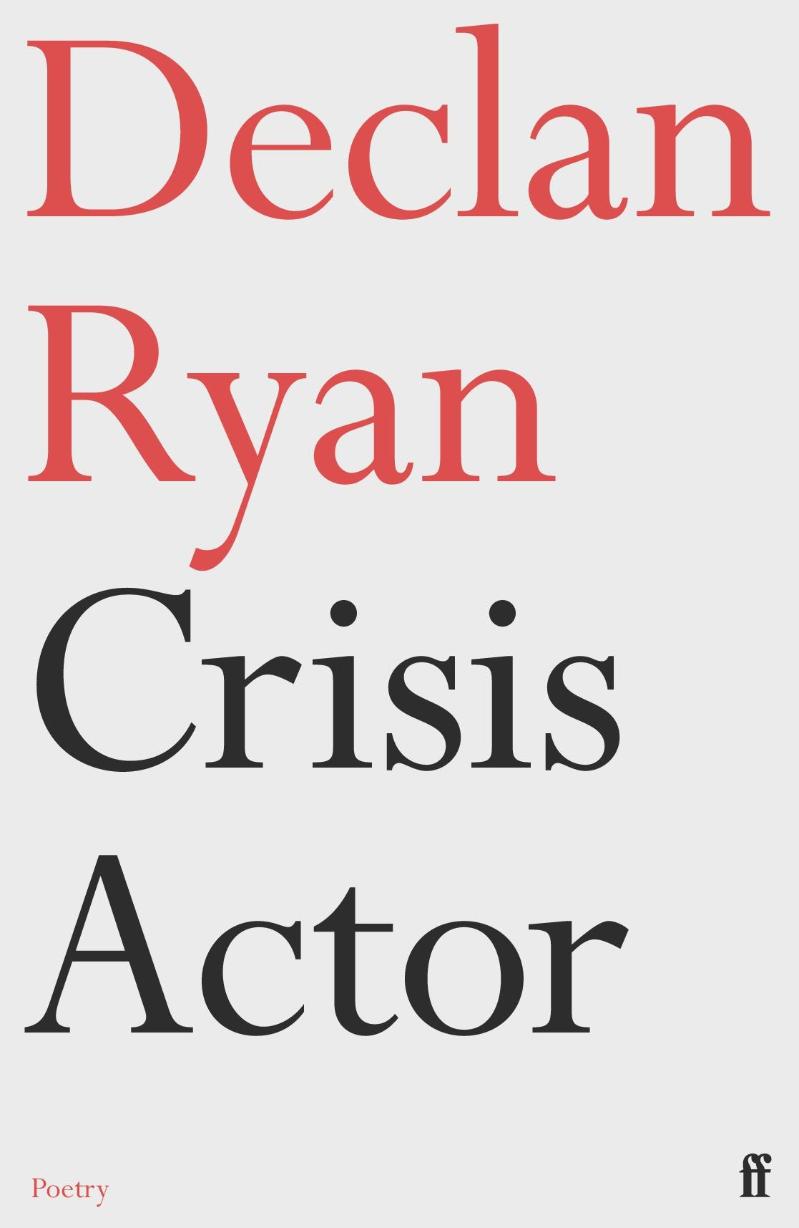
Faber
Crisis Actor chronicles various failures and farewells. It is peopled by faded heroes and deferential devotees; a hanged donkey, a bloated rat; solitary bachelors and disillusioned youths – these are the watchers, not the players. The poems are awash with rueful self-accusation and laconic scepticism. There are touching elegies, reportage and bruised, wary replayings. A blistering sequence about boxers and their fates weaves through the collection. The overwhelming sense is of life going on elsewhere, the halcyon days and brightest of years long past. This is the aftermath of being one who – in Matthew Arnold’s words – ‘has reached his utmost limits and finds . . . himself far less than he had imagined himself’.
But there are still flashes of camaraderie, of stars aligning: lunchtimes in sunlit garden squares, languorous pub afternoons, cheering on and hard-won triumphs. These precious, precarious moments point to how we might reclaim potential, discover human connection in times of defeat or despair, and reach towards grace and redemption.
Declan Ryan was born in Mayo, Ireland and lives in London. He has published two poetry pamphlets, Faber New Poets 12 (2014), and Fighters, Losers (2019). His reviews and essays, mostly on poetry and boxing, have appeared in journals including New York Review of Books, Guardian, The Observer, Times Literary Supplement, The Baffler, New Statesman and Los Angeles Review of Books.
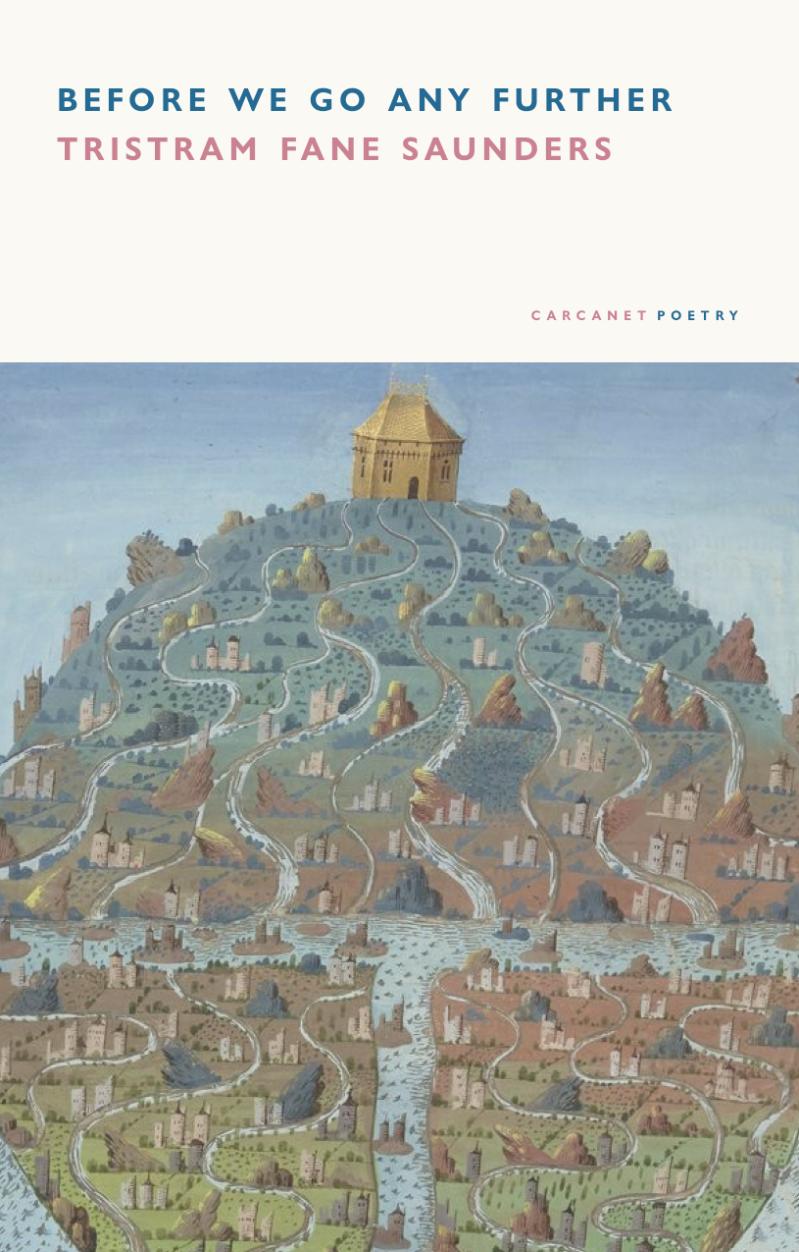
Carcanet
In Tristram Fane Saunders’ first collection, readers encounter a poet whose ingenious forms dazzle, even while exploring darker themes. Drawing on delicious, unconventional rhymes and rhythms, Before We Go Any Further conjures a contemporary London as it maps the ways we try to communicate with each other across real and invented distances. Sphinxes and sea-creatures, sleepwalkers and surrealists visit poems about art and friendship, poems that are ‘trying to tilt toward love’, but ‘can’t help tugging/at the invisibly thin/line between true and honest’. They discover wry humour in that struggle.
Tristram Fane Saunders lives in London and works as a journalist. He is the author of five pamphlets and one poetry collection, Before We Go Any Further (Carcanet, 2023), and is the editor of Edna St Vincent Millay: Poems and Satires (Carcanet, 2021). His poems have appeared in The TLS, The White Review and Poetry Ireland Review.
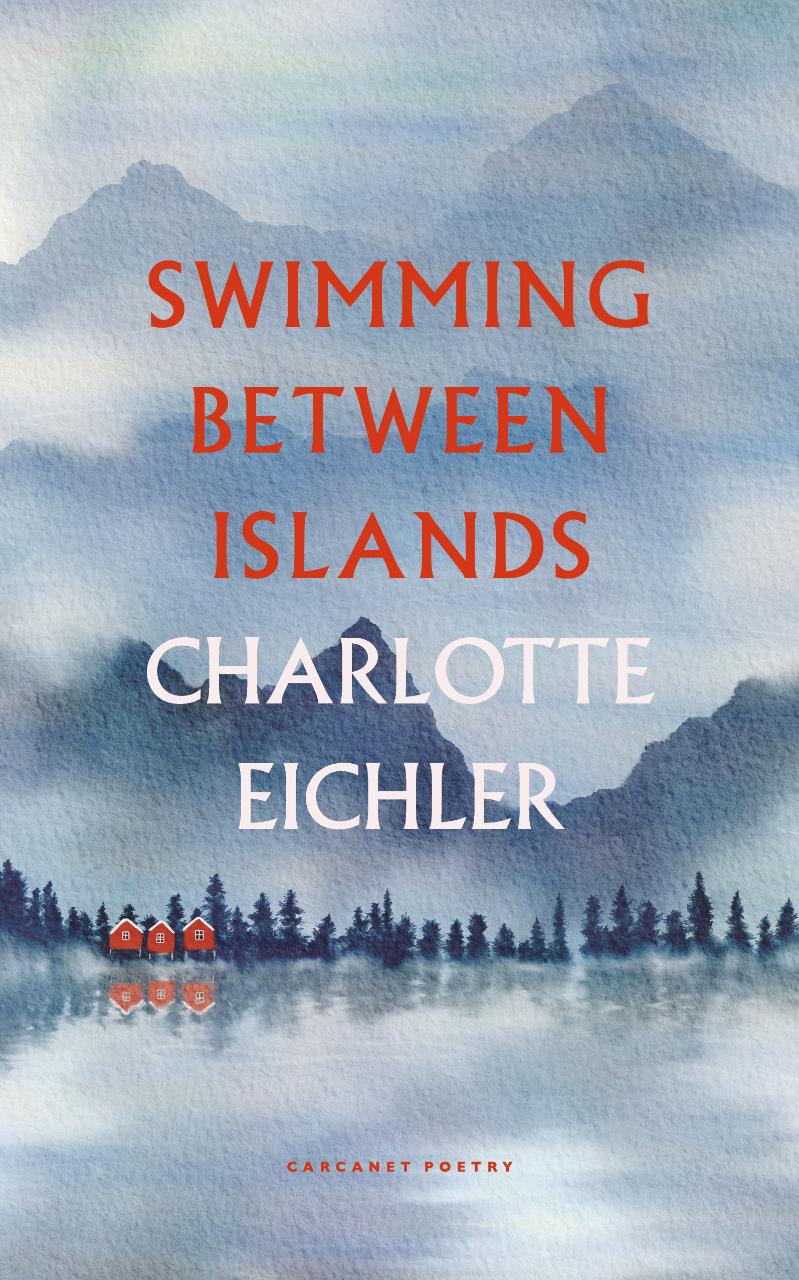
Carcanet
Swimming Between Islands, Charlotte Eichler's first collection, has its own distinctive weathers, atmospheres and fauna. Egg collectors, moth trappers, hermits, cuttlefish, pyjama sharks and bloody henry starfish all play a part. This islanded world is the starting point for poems that explore how we try to connect with each other – despite misunderstanding, family silences and unwanted legacies.
Charlotte Eichler was born in Hertfordshire and studied English Literature and Russian at the University of Nottingham. She has an MA in Norse and Viking Studies, also from Nottingham. Her debut pamphlet, Their Lunar Language, was published by Valley Press in 2018 and a selection of her work was featured in Carcanet’s New Poetries VIII in 2021. She lives near Leeds.
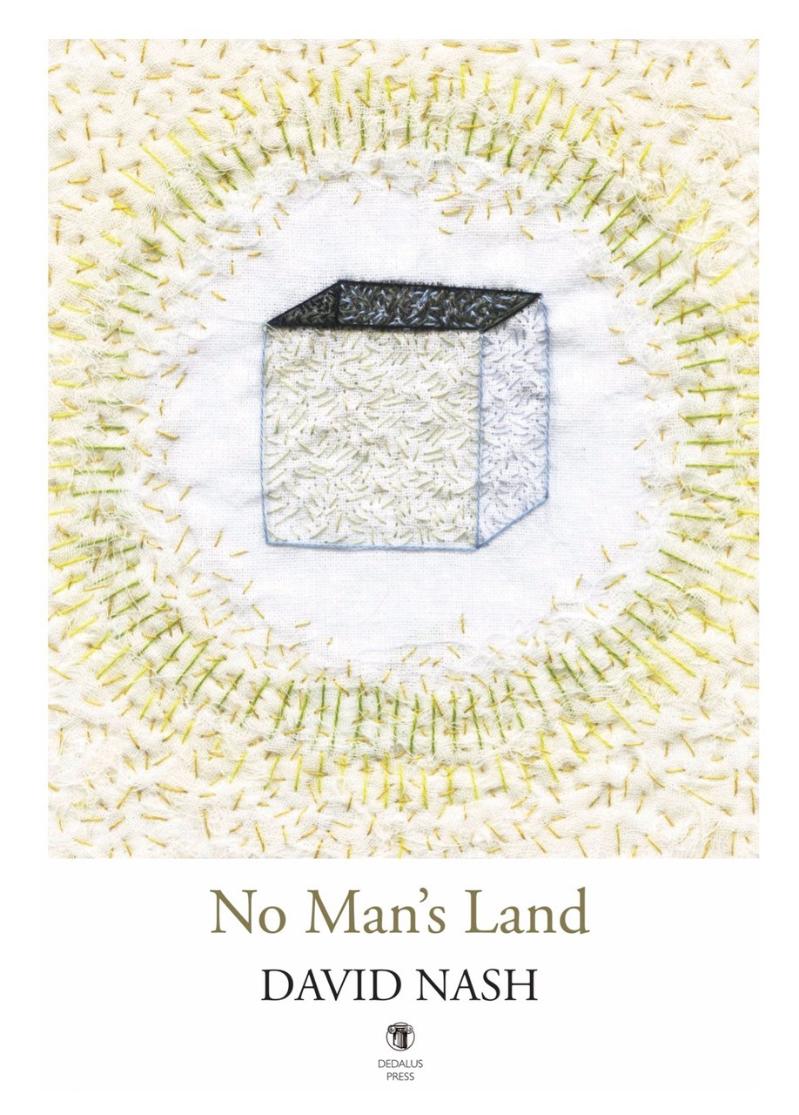
Dedalus Press
No Man's Land is the highly assured debut collection of poems by Chile-based Irish poet David Nash, an exploration and a reclamation of a place at once familiar and strange - the rural landscape of the poet's formative years. Returning for the first time in more than a decade, Nash re-immerses himself in a world of memory and language, folklore and custom, revealing a strikingly intimate connection with flora and fauna, land and seascape. Yet all the while his presence feels questioned, undeserved, his calling as both participant and observer under assault from the passage of time and the overwhelming threat of the present ecological moment. Inventive and playful, surprising and life-affirming, at its heart No Man's Land is nevertheless a book about loss – the loss of language, knowledge, nature and wilderness that affects all of us in these challenging and troubling times.
David Nash was born in Co. Cork and lives between Ireland and Chile. His work is widely published in journals, and his texts have appeared in numerous art exhibitions and books, including for Wolfgang Tillmans at IMMA. A Spanish-language children’s book, Bajo Mis Pies, came out in 2020, as did two translations of books on the cultural history of Chile. He writes for Harpers Bazaar Korea and Elle Korea, and essays have appeared in The Irish Times. His first pamphlet, The Islands of Chile, was published in 2022
